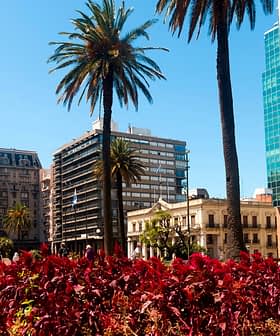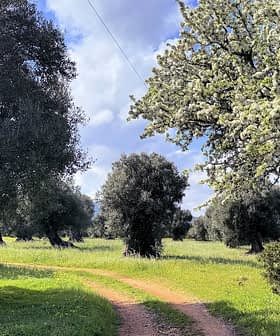Across California, the need for new farmers, climate-based soil research and innovative approaches to agriculture continues to increase.
The Center for Land-Based Learning in Woodland, near Sacramento, is one of the organizations trying to find solutions to some of these challenges.
There are very few beginning farmers in the United States who are learning about farming olives and olive oil.
The center offers young farmers and researchers opportunities to work with orchard systems and has recently launched a new olive-growing initiative.
Julia Thomas, the center’s development and communications manager, told Olive Oil Times that the organization recently planted 2 hectares of olives at its headquarters with the support of Cobram Estate, which donated $25,000 (€23,400) and provided technical assistance.
See Also:State-of-the-Art Irrigation Management Leads to Rising Yields in California“It’s very exciting because we are doing climate science-related research in the orchard, measuring greenhouse gas emissions in different plots – some have been amended with biochar, some with compost and biochar, some with compost and some with just the planted trees,” she said.
“The orchard will be a training opportunity for the beginning farmers who participate in our programs to learn about working with orchard systems and olives in particular,” Thomas added.
Working with high school students and adults to fulfill this far-reaching mission, the center offers several programs to grow the next generation of farmers that the United States needs.
The center’s climate and farming program researches, develops and demonstrates practices that can pull carbon dioxide and other greenhouse gases from the atmosphere and store them in plants and soil.
“Since Yolo County is 85 percent agricultural lands, agricultural soils are one of our most important resources for sequestering carbon and mitigating climate change impacts,” Thomas said.
“This new olive orchard is an important part of our farm and climate program because tree crops, in general, are great at sequestering carbon dioxide from the atmosphere and storing it in the body of trees and the soil,” she added. “Olives are especially important in California because they are so drought tolerant and require less water than some other orchard crops, such as almonds.”
Thomas said the olive grove provides essential training opportunities for beginner farmers and farm business incubators to learn about orchard crops.
“In September 2023, the eleventh class of our beginning farmer training program graduated, and we offer small plots of land at subsidized rates to beginning farmers who are starting a farm business through our farm business incubator program,” she said.
“Until now, we have only been able to offer support in annual crops, so the olive orchard offers us the opportunity to broaden our training to include perennial crops and orchard systems,” Thomas added. “Some of our alumni are also specifically interested in olives.”
The orchard is also an active research site through the California Department of Food and Agriculture (CDFA) healthy soils program. Working in partnership with the University of California – Davis, the center evaluates the impact of biochar and compost, alone and in combination, on soil health and productivity.
Biochar
Biochar is a type of charcoal that is produced from organic materials through a process called pyrolysis. Pyrolysis involves heating biomass (such as wood, crop residues, or agricultural waste) in the absence of oxygen, which results in the decomposition of the organic material and the production of a carbon-rich, stable, and porous material known as biochar.
U.C. Davis maintains a biochar database as an open-access tool documenting the use of biochar as a soil amendment for biochar users, manufacturers and researchers.
“While considered in its infancy, biochar research has generated interest as a soil amendment,” U.C. Davis wrote on its website. “It is studied for its potential for increased soil fertility, water holding capacity, greenhouse gas reduction and carbon sequestration.”
The Center for Land-Based Learning will also host workshops showcasing the research for other growers in the area.
The California Healthy Soils Program (HSP) is a collaboration of state agencies and departments to promote the development of healthy soils on California farms and ranches.
According to the CDFA website, the program has two aspects. “The HSP incentives program provides assistance of conservation management that improve soil, sequester carbon and reduce greenhouse gas emissions.”
The other component, HSP demonstration projects, showcases best practices implemented by California farmers and ranches to keep soil healthy.
The olive grove represents a new area for the center. “Since our expertise is more in training beginning farmers, and we are new to the olive-growing business, we aren’t very familiar with the public perception of olive growing,” Thomas said.
“However, we know that there are very few beginning farmers in the United States who are learning about farming olives and olive oil,” she added.
According to Fern AG Insider report, “one-third of America’s 3.4 million farmers are over the age of 65. Nearly a million more are within a decade of that milestone.”
While many people are concerned that farmers are aging, there is optimism that new people are taking up farming.
The Fern AG reports that 27 percent of farmers are new and beginning producers with ten years or less experience in agriculture.
“Most people do not know the need for a new generation of farmers or the specific challenges that beginning farmers face, such as training, access to land and access to markets,” Thomas said.
“The general perception is that food will always just appear on supermarket shelves and that the farming systems we have will take care of it,” she concluded. “The fact that our farmers are aging and declining is not a widely known issue.”










